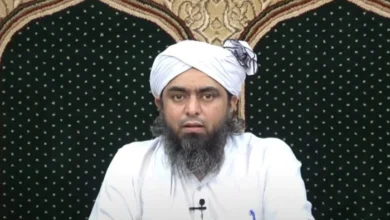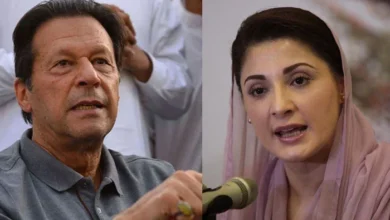RAWALPINDI: The Anti-Terrorism Court (ATC) has accepted for hearing seven post-arrest bail petitions filed by the incarcerated founder of Pakistan Tehreek-e-Insaf (PTI), Imran Khan in cases registered under terrorism charges.
According to details, the bail applications were submitted by the PTI founder’s legal team, including Salman Safdar and Hassnain Murtaza Sunbal. The ATC judge, Amjad Ali Shah, admitted the petitions and issued notices to all parties concerned. The hearing on these applications has been scheduled for September 1.
Imran Khan, currently held on judicial remand at Adiala Jail, was arrested in connection with cases registered at New Town, Naseerabad, Taxila, City, and Civil Lines police stations. These cases, filed in September and November last year, accuse Imran Khan of conspiracy to incite violence, arson, and plotting murder.
Previously, the ATC had remanded him to judicial custody in all seven cases. Now, his legal team has sought bail, arguing against the charges. The hearing on these bail pleas will take place on September 1 at the Anti-Terrorism Court in Rawalpindi.
Earlier, the Supreme Court (SC) had approved bail for the founder of Pakistan Tehreek-e-Insaf (PTI), Imran Khan, in eight cases related to the events of May 9.
A three-member bench, headed by Chief Justice Yahya Afridi and comprising Justice Hasan Azhar Rizvi and Justice Shafi Siddiqui, presided over the proceedings.
During the hearing, Chief Justice Afridi questioned the prosecution, asking, “Apart from oral and electronic evidence, what else do you have against the accused?”
Justice Shafi Siddiqui inquired about the date of the FIR, to which Special Prosecutor Zulfiqar Naqvi responded that the FIR against Imran Khan was registered on May 9.
The prosecutor further informed the court that the police had sought permission from a magistrate to conduct three tests, including a polygraph, and that the SC had also allowed approaching the trial court for this purpose.
However, he stated that Imran Khan did not undergo the tests despite court approval.
Chief Justice Afridi remarked, “If that is the case, legal consequences will follow. But why are you insisting so much? The trial court will evaluate the evidence.”
Justice Hasan Rizvi asked, “Are such tests usually conducted in other criminal cases as well?” Prosecutor Naqvi maintained that strong evidence existed against the accused.
Chief Justice Afridi reiterated, “Such evidence must be proven in the trial court.”
Justice Rizvi also observed that the accused was on bail for two months after the incident and questioned whether that period was insufficient for police investigation.
Imran Khan’s counsel Salman Safdar maintained that his client had already been denied bail by the Lahore High Court in November last year, and that the case remained pending for six months before any progress was made.
He further said that Imran Khan is not even nominated in five cases of May 9.
After arguments from both sides, the SC bench headed by CJP Afridi approved bail of Pakistan Tehreek-e-Insaf founder, Imran Khan, in eight cases.







